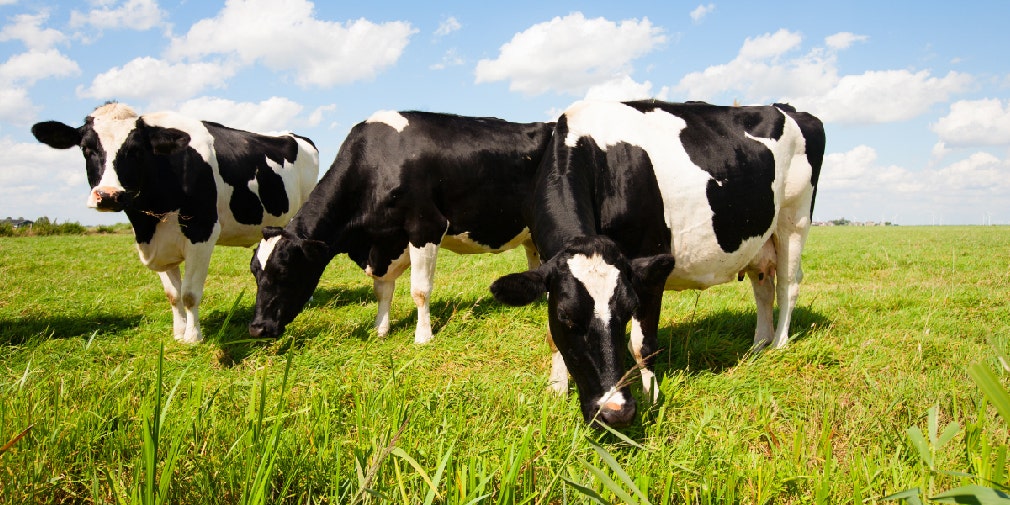
Six steps to help farmers lower the environmental impact of cow diets
Mole Valley Farmers has started on a journey to help farmers lower the environmental impact of ruminant diets.
There’s numerous steps we can all take to help support the environment. However, with feed responsible for 46% of greenhouse gas
emissions from dairy farming*, we thought it was a good place to start.
Some of the steps we’ve taken include:
1. We can calculate the carbon footprint of an individual herd’s diet
We have combined the latest data and research to predict the carbon footprint of every compound and straight delivered to the farm gate. We’re also on track to incorporate carbon foot-printing data into our Precision Nutrition rationing programme so farmers can understand the environmental impact of their whole diet, including best estimates for homegrown forages. The ability to understand the environmental impact of different individual feeds in kilograms of CO2e/kg means we can provide advice on where to make feed ‘swaps’ to help the environment, whilst maintaining performance targets.
2. We’re supporting responsible sourcing of soy and palm
We are now a full member of the Round Table on Responsible Soy Association (RTRS) and Round Table on Sustainable Palm Oil (RSPO). This will mean that from October 2021, for every tonne of soy or palm we buy for use in compounds or blends, additional purchased ‘credits’ will be put towards the production of responsibly grown crops. This will encourage zero deforestation, good agricultural practices and responsible labour conditions. We will absorb all of the additional costs so there will be no impact on the cost per tonne for farmers.
3. We have a selection of no palm, no soy products
Farmers who would rather not feed soy and palm can choose from our existing range of no soy, no palm products. We are also
actively incorporating more home-produced *Professor Phil Garnsworthy, Nottingham University. feed products - such as beans and rape - into our compounds and blends to reduce reliance on imported products. We are working closely with the food industry to
utilise more by-products, such as biscuit meal, which have a lower carbon footprint.
4. We can calculate the nitrogen and methane impact of different diets
We have incorporated nitrogen and methane output into our Precision Nutrition rationing programme. This will allow us to gather data
on the impact of different diets on nitrogen and methane output.
Predicting the grams of methane/cow/day and grams of methane/litre that a specific ration is likely to produce will enable us to gather ‘real’ data around cows and the environment. It will also allow us to benchmark so we’re in a better position to help farmers in the future.
By starting to understand what ‘normal’ looks like for nitrogen excretion, this should help us understand how best to tweak diets to limit nitrogen losses, optimise protein utilisation and protect the environment.
5. We have launched the Great British Feeds range
Our Great British Feeds range includes feeds grown in Britain as the main ingredients. The 25kg bagged products are fully mineralised
and available in Mole Valley Farmers stores. Each has been formulated and balanced for specific systems using Mole Valley Farmers’
Precision Nutrition software.
6. We understand the carbon footprint of our mills
We’re working hard to reduce the carbon footprint of our mills. This includes producing energy from an anaerobic digester at our
Dorchester facility.
*Professor Phil Garnsworthy, Nottingham University.









